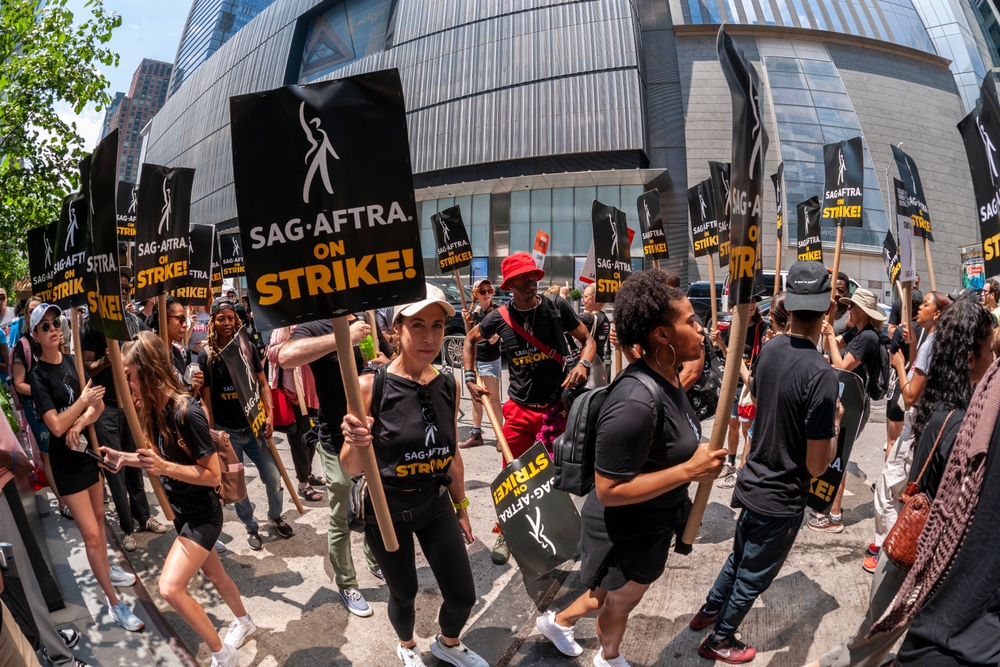After last year’s dual Hollywood strike, AI continues to leave SAG-AFTRA, the world’s largest performers’ union, grappling with how to protect its members as the industry evolves.
During ongoing negotiations with major video game companies, the use of AI in the production process has emerged as a sticking point.
SAG-AFTRA chief Duncan Crabtree-Ireland suggests the chances of a new strike at “50-50, or more likely” in the next four to six weeks.
It’s important to highlight that this is separate from SAG-AFTRA’s agreements struck with film and TV companies last year.
Instead, it’s concerned with protecting video game performers and voice artists and is viewed as potentially more complex due to how long video game franchises can go for.
Speaking at SXSW in Austin, Texas, Crabtree-Ireland acknowledged the strong opinions and divisions among the union’s 160,000-plus members regarding AI and generative AI tools. While some members pushed for an outright ban on their use in union-covered productions, Crabtree-Ireland recognized that such a demand would be unrealistic.
“We would not have succeeded, any more than any union ever in history has been able to stop technology,” he said.
“Unions that try that approach, they fail and they give up the chance to influence how those technologies are implemented. The fact of the matter is, we’re going to have AI.”
These comments echo across other creative industries facing pressures from generative AI, such as digital art and music.
Instead, the union leader emphasized that SAG-AFTRA’s position revolves around “consent and compensation” for its members when AI engines use their work, ensuring that the implementation is “human-centered and focused on augmentation [of production], not replacement of people.”
In late January, SAG-AFTRA announced an experimental agreement with AI voice studio Replica Studios, outlining how AI voices can be used in video games.
The one-year trial contract, unanimously agreed upon by a committee of actors who regularly work in the video game industry, sets out conditions and payments to voice actors while creating digital voices and licensing AI voices in video games.
However, the announcement surprised some top voice actors, with Elias Toufexis (Deus Ex, Assassin’s Creed) and Steve Blum (Call of Duty, God of War) stating that they had not been consulted on the matter.
This demonstrates the complex landscape SAG-AFTRA must navigate as AI becomes increasingly prevalent in the industry.
The gaming industry, in general, has embraced generative AI quickly, with 86.7% of firms identified as early adopters. By 2026, AI could impact 13.4% of this sector’s workforce, or 52,400 jobs.
It’s evident that as the industry continues to evolve, SAG-AFTRA must protect its members while acknowledging the seemingly inevitable adoption of AI technology.
Crabtree-Ireland cautioned video game producers not to underestimate the union’s concerns about AI and their willingness to strike if necessary.
“We don’t want to go on strike,” he said, “But we’re not going to make a deal with these companies that don’t protect our members from abusive and exploitative uses of AI.”





